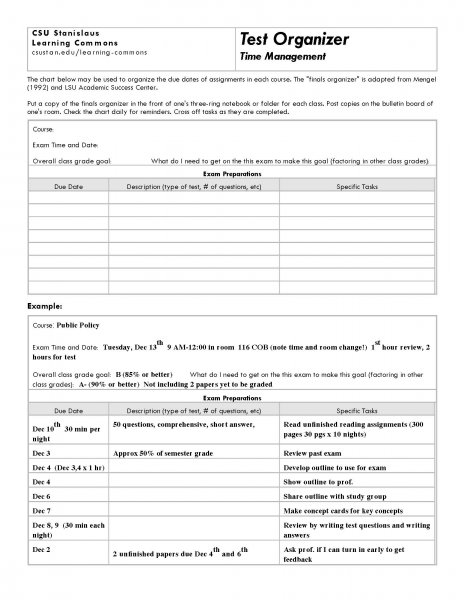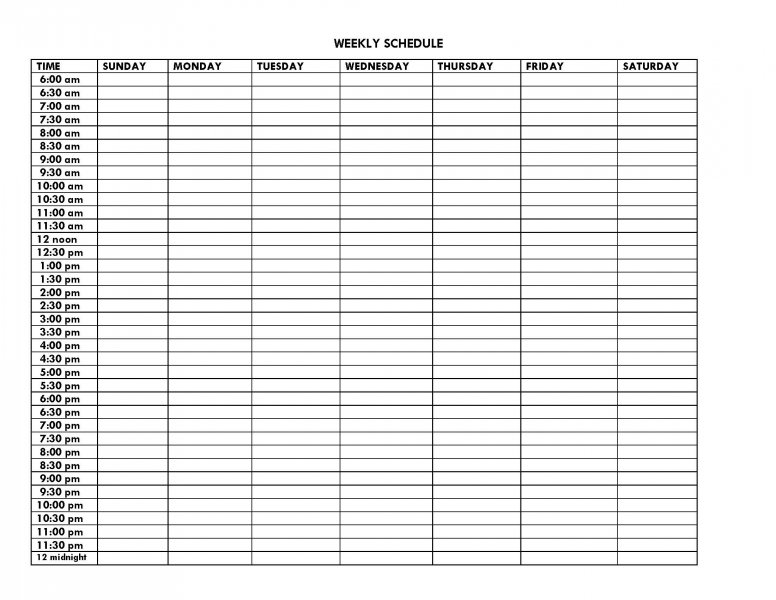
Finals Organizer
Have a to-do list for each of your finals can help you stay on track with your academic goals.
Fill this to-do list out for each course.

Weekly Schedule
Don’t leave finals to chance! Take the time now to plan your finals study schedule.
Mark specific times for each of your courses!

Top 10 Suggestions for Successful Finals
- Adapted from University of Texas Learning Center, 2006
Take time to relax before and between exams; walks bike rides and workouts are all great ways to release nervous energy and increase stamina. Psychological Counseling Services is also available if you need to talk to someone: 209-667-3381.
Schedule a meal with friends, a movie, or a Starbucks trip between finals, and plan a special treat for yourself when finals are over. These rewards will help keep you motivated and your spirits up!
Decrease your anxiety by thinking of finals as a time to apply what you’ve learned all semester, rather than a problematic new experience. Also, try to avoid highly anxious or overly negative people: both anxiety and negativity are contagious.
Set the schedule in advance, write it out, post it so you’ll see it frequently, and stick to it. Be sure to include breaks in your schedule.
Schedule hour-long blocks of time for learning concepts and essential information.
Make use of the 15 minutes you spend walking across campus or the 20 minutes you spend in the laundry room to recall and review information. Remember: frequent reviews will help solidify information in your mind and improve your understanding.
You’ll remain more alert and sharper if you study dissimilar subjects consecutively. Study chemistry first then French, instead of chemistry first and physics second.
If you need extra time to study, resist the temptation to stay up all night; instead, try getting up a little earlier than usual. Your brain will reward you—it's better able to understand and recall information if it’s not exhausted!
Cramming in tons of new information at the last minute will inevitably make you anxious, which will diminish your ability to recall information and synthesize material. But if you find yourself feeling unprepared, use what time you have to review key concepts. Establish hierarchies based on what you think will be on the exam, and concentrate on that material.
If you must stay up late, resist the temptation to overdo it with stimulants. Caffeine and nicotine, for example, can have adverse effects such as jitters, exhaustion, and mental fatigue if taken in too-large quantities. Never take drugs that are prescribed for someone else.
Updated: September 16, 2025